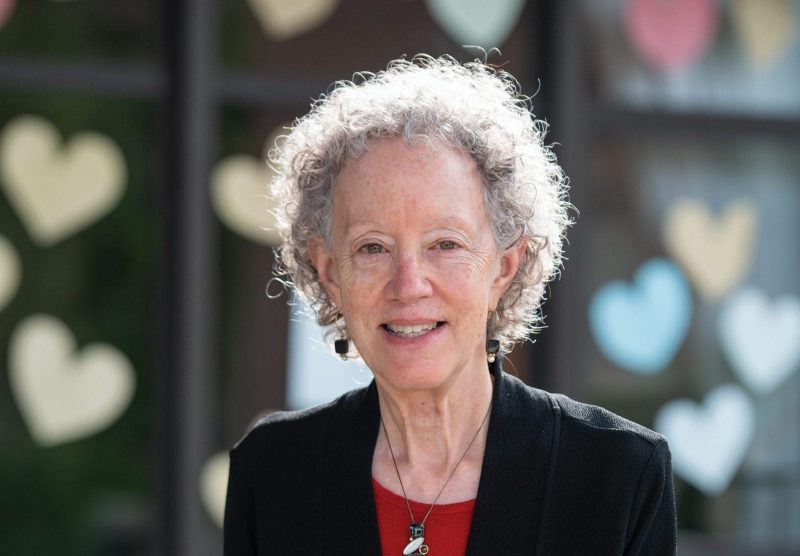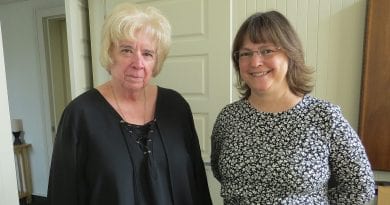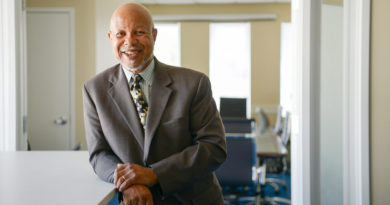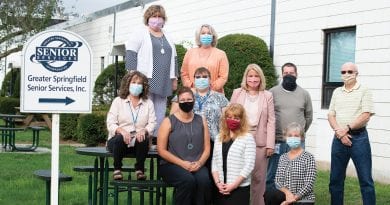Rabbi Devorah Jacobson, Director of Spiritual Life, JGS Lifecare
She Became a Guiding Light at a Time of Pain and Darkness
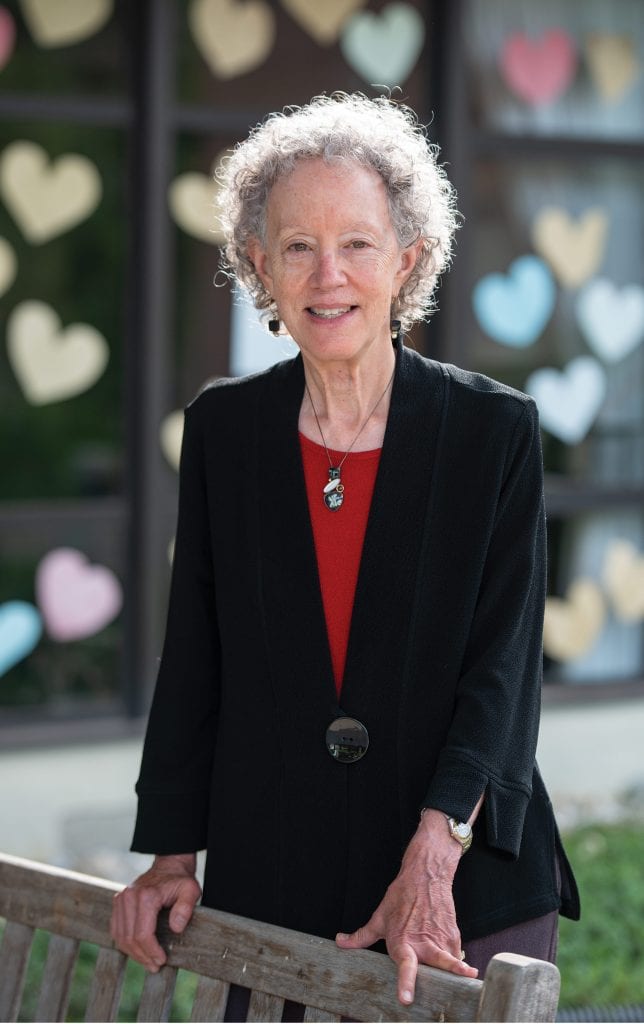
Rabbi Devorah Jacobson came to JGS Lifecare as its director of Spiritual Life in 2001. And, for the first 19 years or so, she came to work each day knowing exactly what her job was and how it would be carried out.
But when the COVID-19 pandemic reached this facility last March … well, she still knew what her role was, but she had to continually revisit that question about how to carry it out, because the answer had the potential to change seemingly every day.
“Every day, I would ask, ‘what does it mean to be a chaplain in a long-term facility during this time?” she told BusinessWest. “In the midst of the pandemic, when many of our residents are sick, many are going to the hospital, and many are dying, and staff are being called upon to work long hours and do things they weren’t necessarily doing before, like post-mortems, and where they’re risking their own health and lives every day they walked into the building … I’m observing all this and asking myself, ‘what is my role as the spiritual leader of this institution?’”
To say she would find new — and impactful — ways to answer that question would be an understatement.
Indeed, over the course of the past seven months, Jacobson has been a source of comfort to a number of constituencies, including staff members, residents, and their families. And she has done this through a number of means, everything from donning PPE and visiting sick and dying residents with COVID to rallying community organizations to send staff members meals of gratitude; from enlisting crisis therapists and mental-health counselors to offer staff free confidential counseling to creating prayer and inspiration cards for spiritual support; from helping raise awareness and funds for JGS’s Employee Assistance Fund to moving furniture, on at least one occasion.
“I’m part of the team,” she explained. “And I made a pretty quick decision — to be truly part of the team, 365 days a year, we do what we’re called upon to do.”
It is sentiments like this that prompted Susan Halpern, vice president of Development and Communications for JGS, who nominated Jacobson, to write that “our heroes are people we look up to and admire for their extraordinary actions and achievements. They are people we wish to emulate. Devorah’s countless acts of caring and loving-kindness, her concern for others, her efforts seeking justice for all, make her a standout candidate for the prestigious Healthcare Heroes award.”
“I’m part of the team. And I made a pretty quick decision — to be truly part of the team, 365 days a year, we do what we’re called upon to do.”
Indeed, as she talked with BusinessWest at a small table outside the Julian J. Leavitt Family Jewish Nursing Home — a nod to the precautions being taken to keep all those inside the facility safe — Jacobson repeatedly pointed toward the building and said, “the real heroes are in there.”
She was referring to the frontline workers who confronted a ferocious outbreak of COVID-19 in the early spring that would ultimately claim 66 lives and leave staff members fearful of what might happen to them, but still committed to carrying out their jobs.
In many ways, she pivoted within her role, from spending the bulk of her time with residents and families — handling everything from Jewish programming to pastoral care, including one-on-one visits — to now devoting most of it to those staff members fighting the COVID battle but also confronting the many other issues of the day.
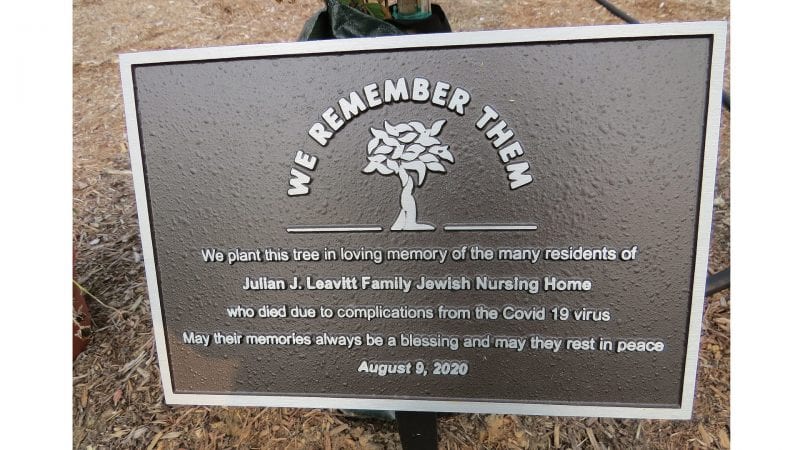
“Yes, I was continuing to meet with residents, although they were very frail and very sick, and yes, I was continuing to be in touch with family members, because they were unable to come into the building — I was able to give them a sense of how their loved ones were doing,” she recalled. “But much of the focus shifted to the staff.”
And it has remained there, months after the height of the tragedy, because the need remains — and is significant.
“I was just involved in a conversation with a nurse,” she said while speaking with BusinessWest. “She took me aside and said, ‘now that COVID has passed, many of us are dealing with PTSD [post-traumatic stress disorder]. I’m not sure what kind of help we need, but we need some help.’”
She has been providing such help, and in several ways, one of them being help in securing counseling for the many staff members impacted by the crisis.
“It was quite clear, as I was visiting the units and talking to staff, that there was a lot of trauma,” she recalled. “So what I wound up doing, with the help of a lot of great friends in the therapy world, was put together a therapy initiative for our staff. I had a list of about 30 mental-health counselors, trained in trauma and crisis counseling, who made themselves available for phone, Zoom, or otherwise, to be available for up to six hours, for free.
“I started making matches,” she went on, adding that maybe 20-25 staff members took advantage of the program. “Some of these people got sick, so for some of them, it was when they got back and had gone through all they had gone through with their own illness.”
Each day, she would arrive at the facility and ask herself how she could carry out her role, how she could help. And seemingly each day, there was a different answer.
It might be creating a new prayer and inspiration card — one of them says simply, “be the change that you wish to see in the world.” In response to George Floyd’s death and the Black Lives Matter movement, she held an all-campus moment of silence and urged individuals and the organization as a whole to seek ways to defeat bigotry and racism. In response to an on-campus arson attempt, she spoke up against hate crimes and anti-Semitism. On more than a few occasions, she helped box up the belongings of residents who had died as a result of COVID-19.
While Jacobson’s recollections of the past seven months and thoughts about her work certainly resonate, comments from others about the comfort and support she provided speak volumes about her impact during this time of crisis.
“My only regret was that I could not hold my mother’s hand. Devorah held her hand for me. She let me say goodbye to my mother … she was there to bridge the gap. It is because of Devorah that my journey was so peaceful.”
Halpern forwarded this comment from a family member: “Devorah went in to see my parents every day and she called me every day to give me updates. My only regret was that I could not hold my mother’s hand. Devorah held her hand for me. She let me say goodbye to my mother … she was there to bridge the gap. It is because of Devorah that my journey was so peaceful.”
Halpern also shared an e-mail from Lola White, an LPN and unit manager at the Leavitt Nursing Home, which was sent to her unsolicited. “Throughout this pandemic,” it read, “Devorah has always been there and ready to help in any way she could.
“One day, I was attending to a resident who lost the COVID battle,” it continued. “She immediately asked me, as she always did, if I was OK. Next thing I know, she was suited and booted, by my side, helping me. Before she helped me, I felt defeated. Her acts of compassion for me and every other staff member in the facility made it easier to cope … She set up meals, counselors, and even called and texted staff that were out sick or had a sick family member … I am looking for a way to thank her for everything.”
Needless to say, many people share that sentiment.

